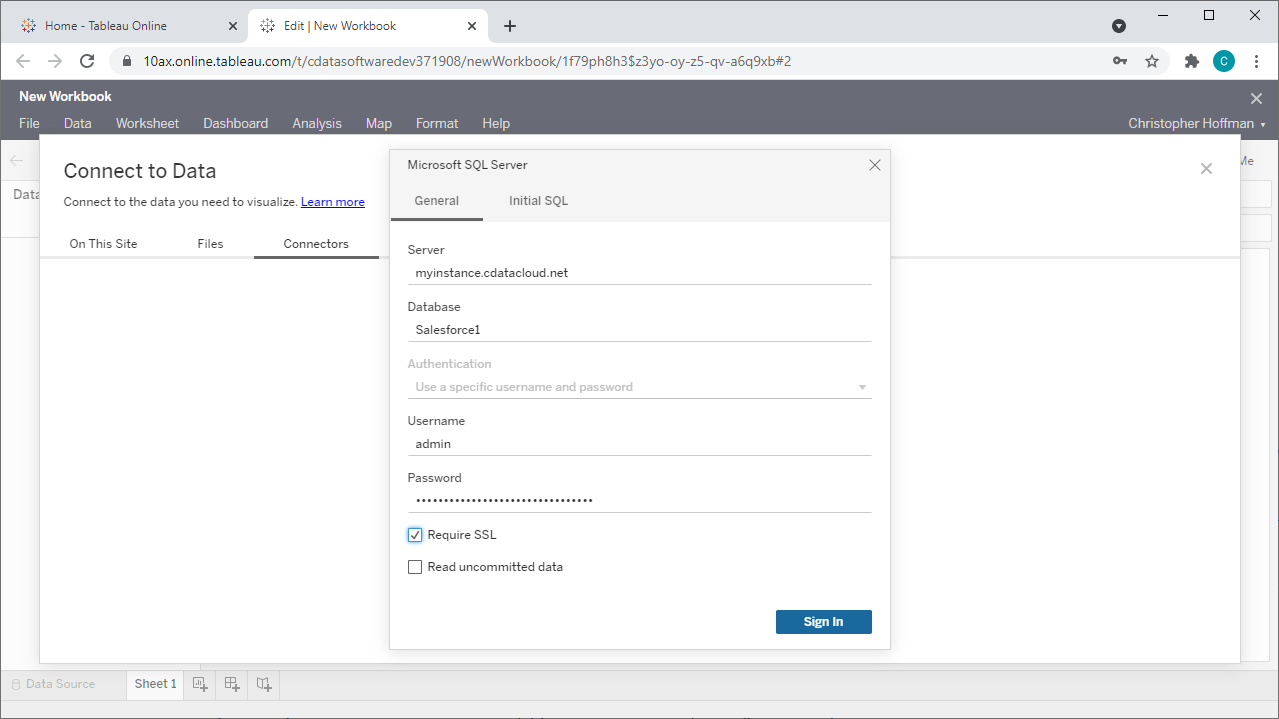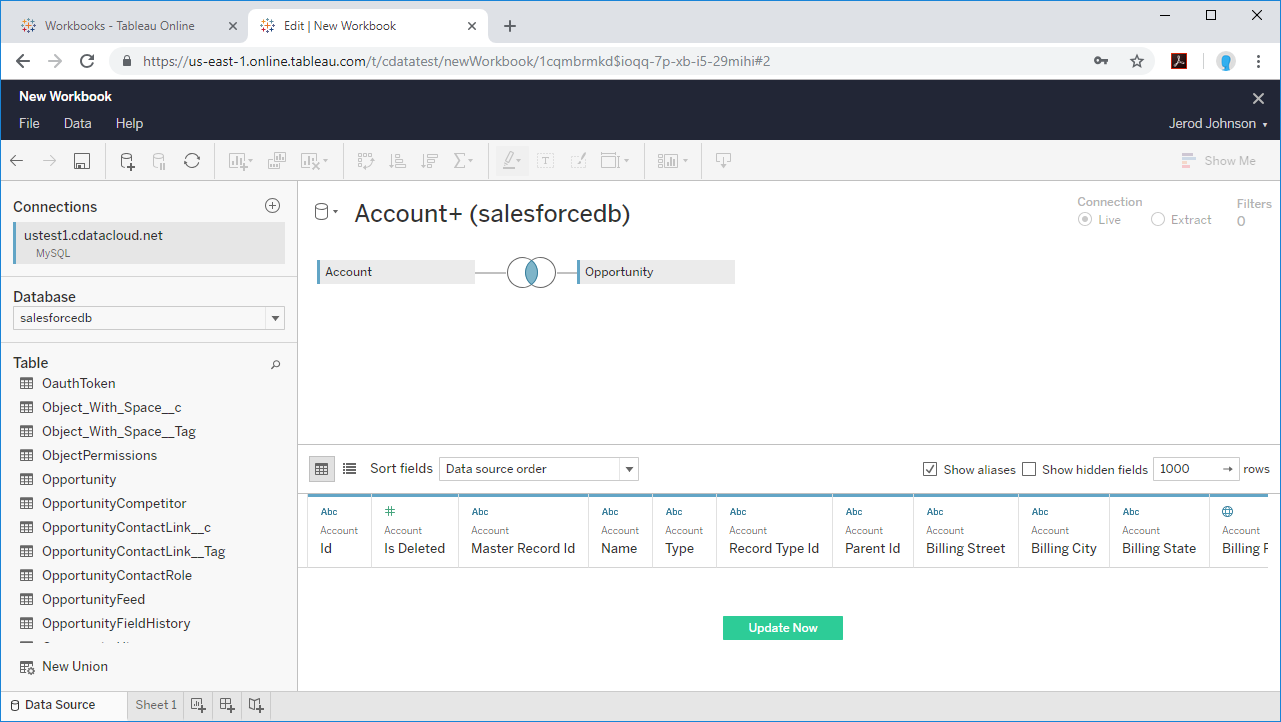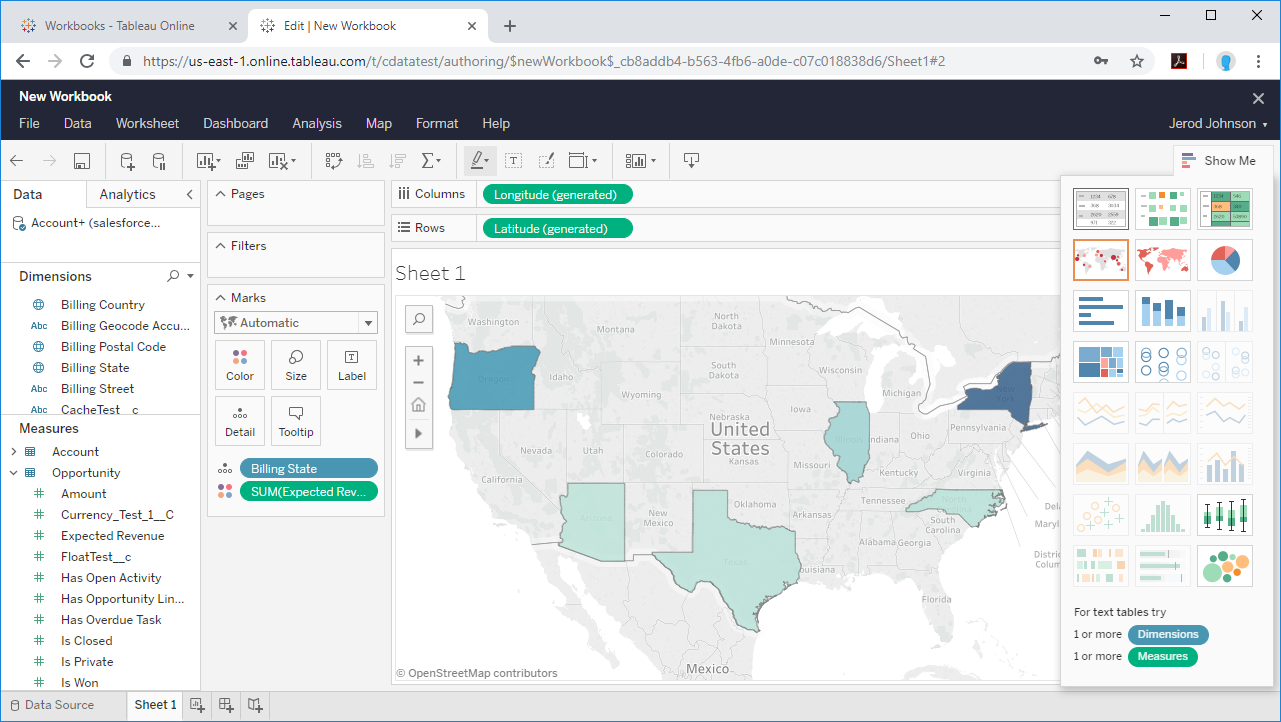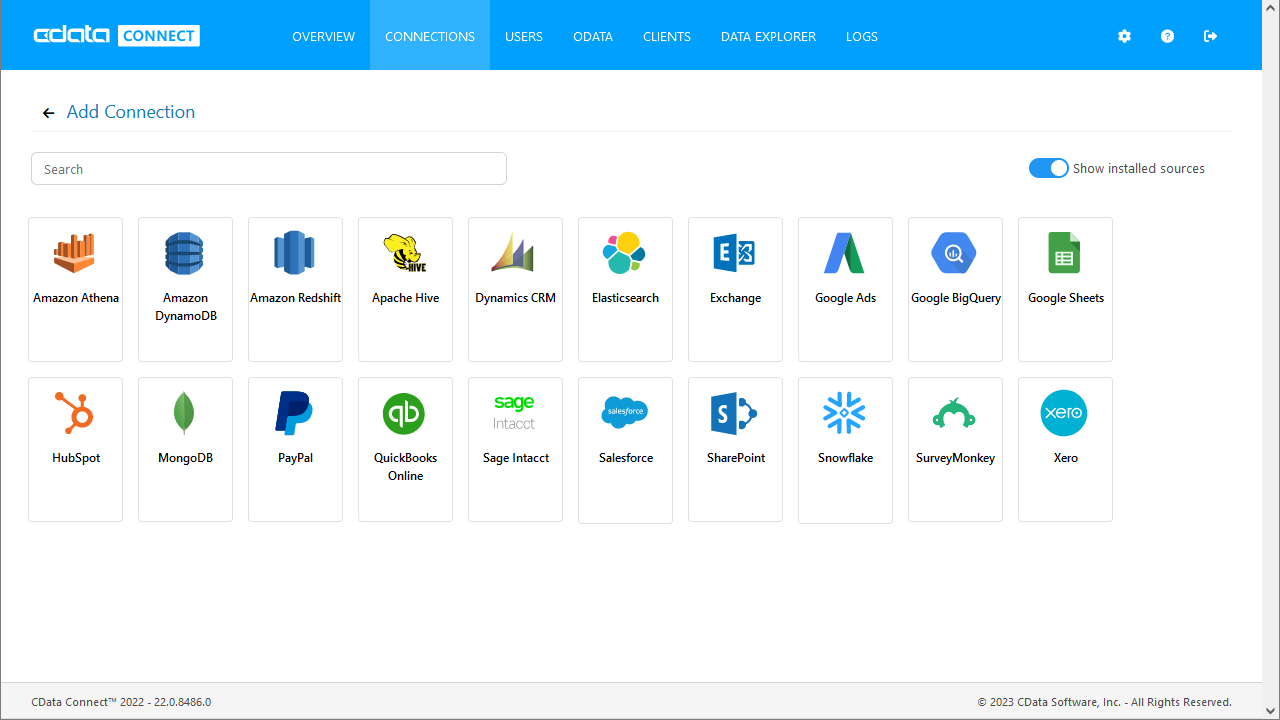Discover how a bimodal integration strategy can address the major data management challenges facing your organization today.
Get the Report →Build Unbounce Visualizations in Tableau Cloud
Use CData Connect Server to create a virtual SQL Server Database for Unbounce data and build visualizations in Tableau Cloud.
Tableau Cloud is an analytics platform fully hosted in the cloud. When paired with CData Connect Server, you get instant, cloud-to-cloud access to Unbounce data for visualizations, dashboards, and more. This article shows how to create a virtual database for Unbounce and build visualizations from Unbounce data in Tableau Cloud.
CData Connect Server provides a pure SQL Server interface for Unbounce, allowing you to easily build visualizations from live Unbounce data in Tableau Cloud without installing connectors or publishing worksheets and data sources from Tableau Desktop. As you build visualizations, Tableau Cloud generates SQL queries to gather data. Using optimized data processing out of the box, CData Connect Server pushes all supported SQL operations (filters, JOINs, etc) directly to Unbounce, leveraging server-side processing to quickly return Unbounce data.
Create a Virtual SQL Server Database for Unbounce Data
CData Connect Server uses a straightforward, point-and-click interface to connect to data sources and generate APIs.
- Login to Connect Server and click Connections.
![Adding a connection]()
- Select "Unbounce" from Available Data Sources.
-
Enter the necessary authentication properties to connect to Unbounce.
Start by setting the Profile connection property to the location of the Unbounce Profile on disk (e.g. C:\profiles\Unbounce.apip). Next, set the ProfileSettings connection property to the connection string for Unbounce (see below).
Unbounce API Profile Settings
Unbounce uses OAuth to authenticate to your data.
In order to authenticate to Unbounce, you will first need to register an OAuth application. To do so, go to https://developer.unbounce.com/getting_started/ and complete the Register OAuth Application form.
After setting the following connection properties, you are ready to connect:
- AuthScheme: Set this to OAuth.
- InitiateOAuth: Set this to GETANDREFRESH. You can use InitiateOAuth to manage the process to obtain the OAuthAccessToken.
- OAuthClientId: Set this to the Client Id that is specified in your app settings.
- OAuthClientSecret: Set this to Client Secret that is specified in your app settings.
- CallbackURL: Set this to the Redirect URI you specified in your app settings.
![Configuring a connection (SQL Server is shown).]()
- Click Save Changes
- Click Privileges -> Add and add the new user (or an existing user) with the appropriate permissions.
With the virtual database created, you are ready to build visualizations in Tableau Cloud.
Visualize Live Unbounce Data in Tableau Cloud
The steps below outline creating a new data source in Tableau Cloud based on the virtual Unbounce database in Connect Server and building a simple visualization from the data.
- Log into Tableau Cloud, select a project, and create a new workbook.
- In the new workbook, choose the Microsoft SQL Server Connector from the data wizard and fill in the values for your Connect Server instance.
NOTE: Be sure to check the "Require SSL" checkbox. - Select your newly created database and the table(s) you wish to visualize (defining relationships for JOINed tables as needed).
- Select Dimensions and Measures and configure your visualization.



SQL Access to Unbounce Data from Applications
At this point, you have a direct connection to live Unbounce data from your Tableau Cloud workbook. You can create new visualizations, build dashboards, and more, with no need to publish data sources and workbooks from Tableau Desktop. For more information on gaining SQL access to data from more than 100 SaaS, Big Data, and NoSQL sources from cloud applications like Tableau Cloud, refer to our Connect Server page.








